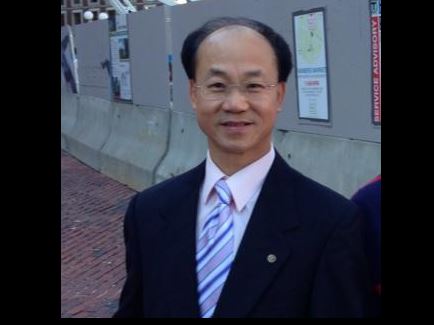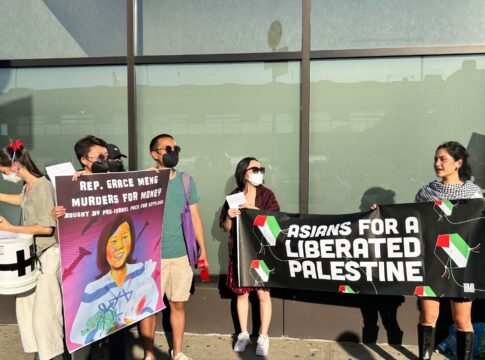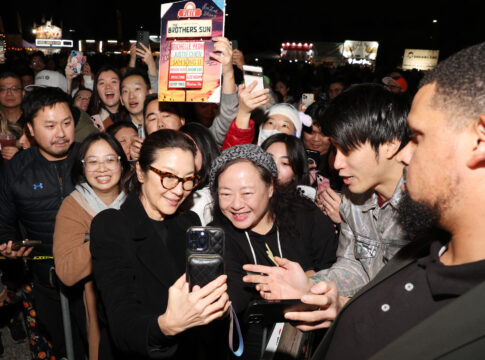By Julia Tong
Community organizer Li-Tang Liang is a well-known member of Boston’s Chinese community. Liang served on the board of directors for Chinatown Main Street and the Chinese Consolidated Benevolent Association of New England, and was also an active member of his union, UNITE HERE Local 26. In addition, Liang is an activist for peaceful relations between the U.S. and China.
So when Liang was indicted by the Department of Justice in May, for failing to disclose that he was acting as an “agent” of a foreign government, the local community was confused and outraged.
“Everyone should have the right to exercise free speech and the right to advocate for peace between the U.S. and another country,” reads a joint statement from the Asian Pacific American Labor Alliance (APALA) Massachusetts Chapter, and Liang’s union, UNITE HERE Local 26.
“Targeted prosecutions of Chinese Americans advocating for peace is racist and an infringement of our right to free speech.”
LATEST STORIES
“The charges don’t hold a lot of water.”
According to a DOJ statement, Liang was formally charged with acting, or conspiring to act, as “an agent of a foreign government without providing notification to the U.S. Attorney General.” The DOJ further alleged that, between 2018 and 2022, Liang had shared images and videos of protests with Chinese government officials, and provided information about pro-Taiwan and Hong Kong individuals based in the Boston area.
“We allege that Mr. Liang engaged in a series of acts on behalf of the PRC government including providing information on Boston-area residents, organizations and dissidents to PRC government officials – potentially placing people at risk here in Massachusetts and abroad,” said Massachusetts attorney Rachael S. Rollins.
But APALA-MA members disagree. They say that the charges show how Liang is being racially profiled, especially due to his political activism.
When APALA board member Amrita Dani reviewed the indictment, she was especially concerned by the lack of specificity of the charges against Liang. For instance, Liang had not been charged with espionage, nor receiving payments from the Chinese government or being coerced into spying for them.
Liang’s alleged actions, Dani adds, would not ordinarily be grounds for charges. For instance, taking pictures of protests is protected under the First Amendment, and meeting consulate members is normal for those with ties to other countries.
“He’s not being charged with doing anything specifically treasonous, or breaking the law,” says Dani. “The charges don’t hold a lot of water.”
Liang was formally charged under the Foreign Agents Registration Act (FARA), which requires individuals and companies to register with the DOJ if they are acting on behalf of a foreign government. Though obscure, the law has been increasingly invoked in recent years, ostensibly to protect against foreign influence from Russia, China, Saudi Arabia, and other governments.
FARA has raised concerns for being inconsistently enforced, as well as targeting peace activists or other political dissidents. Famously, in 1951, civil rights activist W. E. B. Du Bois was charged under FARA for reprinting anti-nuclear weapons literature that had originated in France.
Liang’s case, Dani says, reflects how FARA is being selectively applied against Chinese Americans.
“It’s anti-Chinese racism,” she says. “If you’re Irish or Israeli or Indian, and you’re talking to your consulate, that would not be grounds for this kind of charge.”
“This targeting that we’re seeing specifically because Henry is both Chinese American and involved in anti-war peace organizing, for peace with between the US and China.”
“We are seeing it have a chilling effect”
Liang’s indictment has raised concerns about intensifying prosecution against Chinese Americans in the name of national security— especially those that are politically active.
The Trump administration’s China initiative, for instance, saw a rash of arrests of Chinese Americans, including numerous scientists. Advocates say Liang’s case is an example of how this racial profiling has continued, even after the initiative formally ended in 2022.
“Racially motivated prosecutions in the name of false national security concerns are intensifying across the country,” reads APALA and UNITE 26’s statement. “Someone undergoing trial should not be presumed guilty and should have the right to due process.”
In addition, Liang was immediately suspended from his job despite not having proven guilty. All of these factors create a “chilling effect,” says Dani. She fears Asian Americans may be increasingly dissuaded from participating in civic or political activities, such as participating in a union or going to protest, out of fear of persecution or losing their livelihoods.
“There’s now a higher bar for Asian Americans to prove their loyalty in some way to the US, and part of that would be refraining from dissent,” said Dani.
Despite these challenges, however, community members have begun organizing in Liang’s support.
One important factor, Dani says, is being vocal in challenging the DOJ’s narrative, which has been unquestioningly repeated in coverage of Liang’s case.
“The more people are talking about it and are presented with an alternative that challenges that dominant narrative, the more we can put pressure on the people in power to rethink or step away from this kind of racial profiling and fearmongering,” says Dani.
The second—and perhaps most crucial— factor is solidarity. APALA and UNITE 26 have started a petition to support Liang, and provided political education for community members on how to fight back against those persecutions.
Facing these challenges together, Dani says, is crucial to fighting racial profiling and anti-Chinese sentiment.
“We’re saying that…the way we protect ourselves is like by standing in solidarity,” she says.
“And by all of us taking this stand, it makes it harder for individual people to be isolated and attacked, or scapegoated the way Henry has been.”
AsAmNews is published by the non-profit, Asian American Media Inc. Please consider making a donation and following us on Facebook, Twitter, Instagram and TikTok. Information about interning, joining the staff or volunteering is here. We are supported in part by funding provided by the State of California, administered by the California State Library in partnership with the California Department of Social Services and the California Commission on Asian and Pacific Islander American Affairs as part of the Stop the Hate program. To report a hate incident or hate crime and get support, go to CA vs Hate.”








